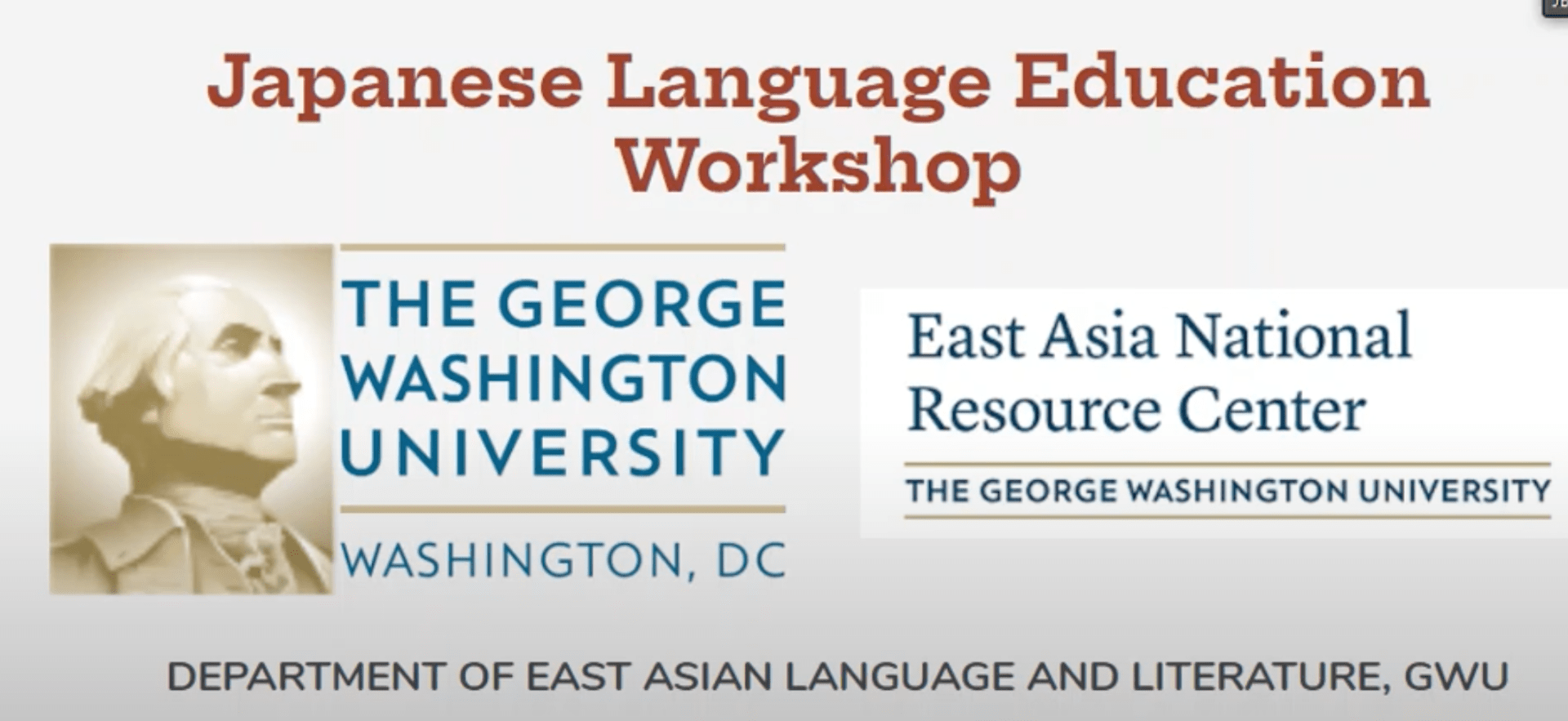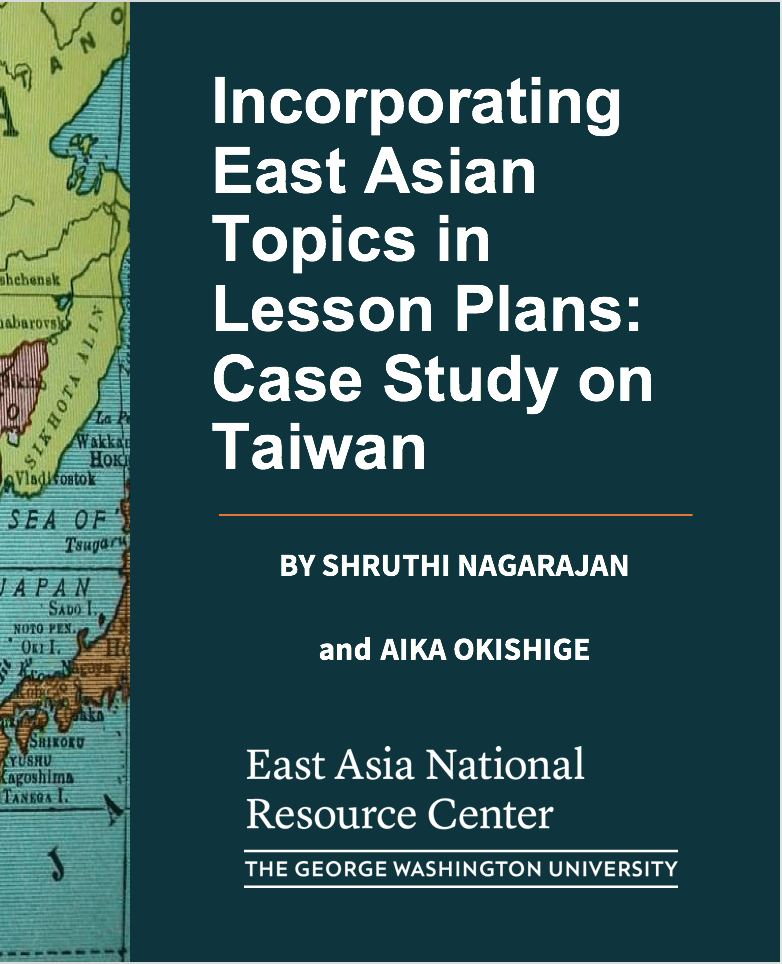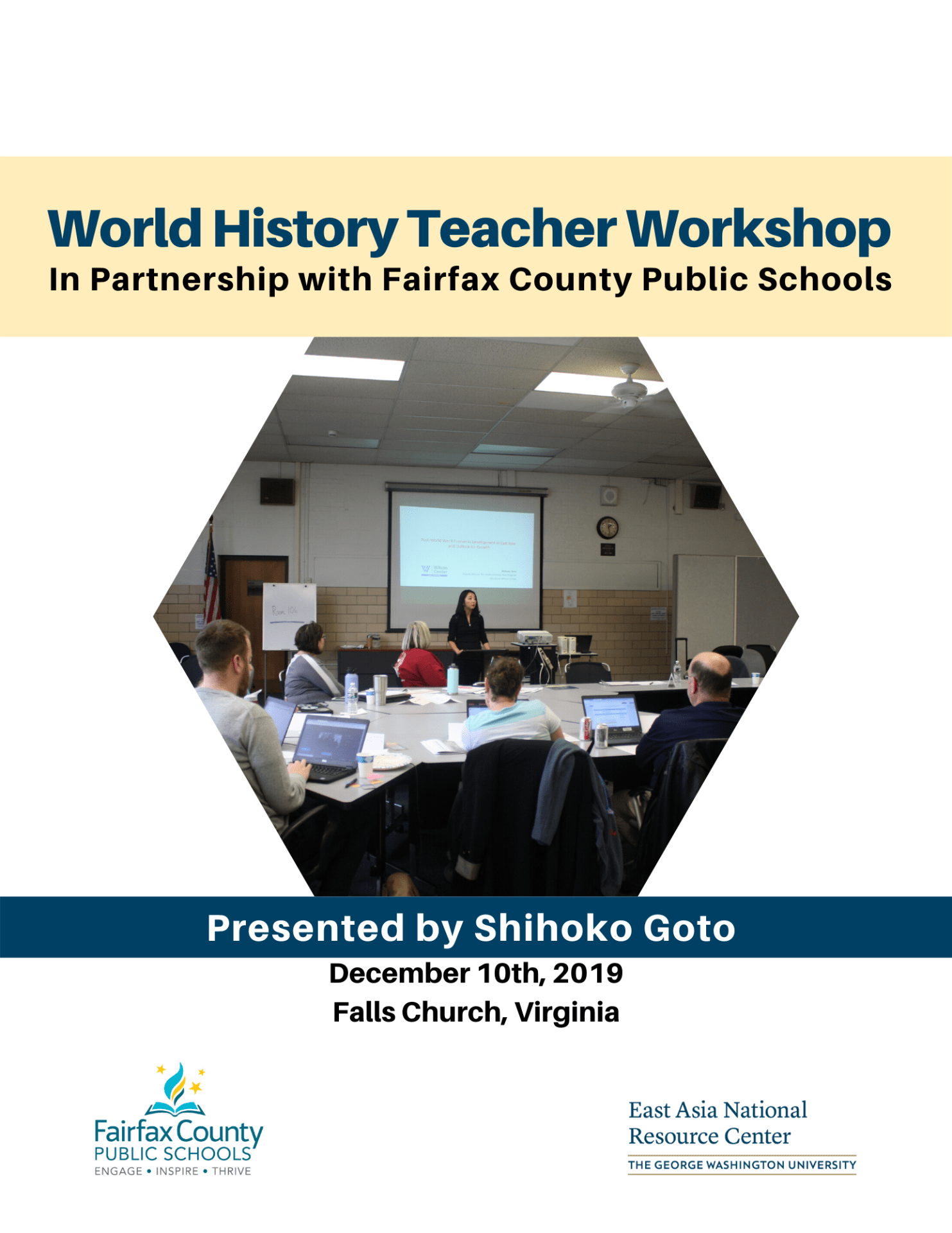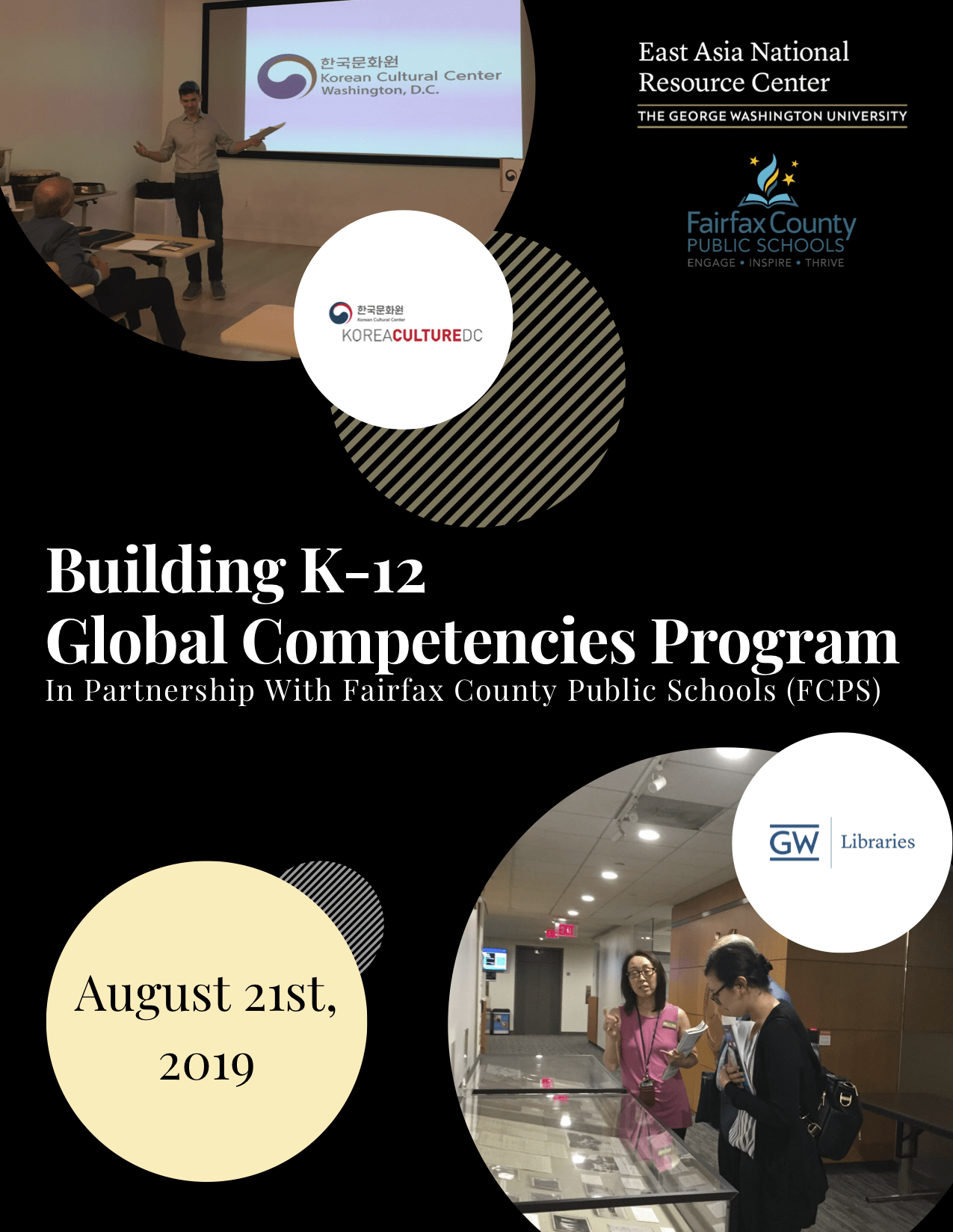This page serves as the repository for the content discussed at past teacher training workshops. Please feel free to look through the individual publications listed here to find out how our workshops are conducted. For past participants of the workshops, this page may be useful in acquiring recapitulated texts of the specific discussions for recollection purposes.

Global Response to COVID-19: Reopening of K-16 Schools in South Korea
Description: The safe reopening of schools after shutdowns in response to the COVID-19 pandemic is a global challenge and task. Nearly 6 million students in South Korea’s K-12 educational system have been back at their schools for over a month now. Like many other countries, South Korea suspended physical classes with the outbreak of COVID-19 and has wrestled over how to bring K-16 students back to their campuses without comprising their safety. The new school year in South Korea, which falls in early March, unprecedentedly kicked off through remote classes in April. Following an easing of social distancing regulations in early May after a flattening of the curve, South Korea began a phased reopening of K-12 classes which was complete nationwide in early June. As the U.S. aims to reopen schools in the fall, South Korea’s experience would provide an example of how to manage holding physical classes in the midst of a pandemic and also deal with the potential risks.
Speaker: Sarah Kim, Reporter Korea JoongAng Daily/International New York Times
To view the workshop presentations, please click the buttons on the right side.
Disclaimer: Please note that that this specialized workshop is for Japanese language instructors and that it is in Japanese (with most slides and resources mentioned being English accessible).
GW Workshop on Japanese Language Teaching: Interactive Tools for Long-Distance Teaching
Description: The East Asian Languages & Literatures department hosted a virtual teacher workshop as part of their Summer Language Institute program. Please note that that this specialized workshop is for Japanese language instructors and that it is in Japanese (with most slides and resources mentioned being English accessible).
Speaker: Noriko Otsuka, Fairfax County Public Schools,
To download the workshop presentation, please view the Powerpoint file by clicking on the image above.
Incorporating art Asia Topics in Lesson Plans
Description: The East Asia National Resource Center at The George Washington University aims to provide educators and future leaders with resources about contemporary East Asian issues to encourage greater learning and public discourse on global affairs. This mission goes hand in hand with designing a culturally responsive curriculum. Our session, led by our curriculum developers, explored how teachers can incorporate East Asian topics into their courses, with a case study on a lesson plan about authoritarianism during Cold War Taiwan and subsequent democratic development serving as an example. Teachers were also given resources on East Asian topics to consider investigating further. The curriculum developers also covered how to factor in the intercultural and intersocial dimensions of learners and educators alike.
Speakers: Shruthi Shree Nagarajan & Aika Okishige, NRC Curriculum Develoeprs
For more details on the publication, please view the PDF file by clicking on the image above.
World History Teacher Workshop in Partnership with Fairfax County Public Schools (FCPS), December 2019
Description: East Asia National Resource Center at the George Washington University was invited to the world history teacher training workshop by FCPS, which took place in the Leis Center in Falls Church, Virginia. The objectives of the workshop were to:
- Shift/tune instruction that frames the study of the past as a relevant understanding/application to the present.
- Provide multiple opportunities for world history teachers to learn from and contribute to world history communities.
- Apply learning in world history content to classrooms.
Speaker: Shihoko Goto, Wilson Center
For more details on the publication, please view the PDF file by clicking on the image above.
K-12 Teacher Training Workshop in partnership with District of Columbia Public Schools, August 2019
Description: This sessions traces the spread of Chinese technology such as paper making, printing, the compass, and gunpowder to other parts of Asia, the Islamic world, and Europe. It will introduce the social and cultural context for Chinese technological innovations, how Chinese technology disseminated to other parts of the world by the means of empire expansion and trade routes, and how this technology changes the world.
Speaker: Ting Zhang, PhD , University of Maryland
For more details on the publication, please view the PDF file by clicking on the image above.
Building K-12 Global Competencies program in partnership with Fairfax county public schools, August 2019
Description: On August 21, 2019, NRC hosted the Teacher Training Workshop focused on East Asian studies for middle and high school teachers from Fairfax County Public Schools. Throughout the intense half-day workshop, teachers received up-to-date resources related to East Asian studies and delved deeper into instructional development. The workshop was composed of two sessions: Session 1, which covered Korean history, culture, and contemporary affairs, and Session 2, with a tour of educational resources on East Asian countries.
Speaker: Adam Wojciechowicz, Korean Cultural Center
Global Response to COVID-19: Reopening of K-16 Schools in South Korea
Description: The safe reopening of schools after shutdowns in response to the COVID-19 pandemic is a global challenge and task. Nearly 6 million students in South Korea’s K-12 educational system have been back at their schools for over a month now. Like many other countries, South Korea suspended physical classes with the outbreak of COVID-19 and has wrestled over how to bring K-16 students back to their campuses without comprising their safety. The new school year in South Korea, which falls in early March, unprecedentedly kicked off through remote classes in April. Following an easing of social distancing regulations in early May after a flattening of the curve, South Korea began a phased reopening of K-12 classes which was complete nationwide in early June. As the U.S. aims to reopen schools in the fall, South Korea’s experience would provide an example of how to manage holding physical classes in the midst of a pandemic and also deal with the potential risks.
Speaker: Sarah Kim, Reporter Korea JoongAng Daily/International New York Times

EAST ASIA NATIONAL RESOURCE CENTER
Join Our Mailing List
Receive news and updates about EANRC events.






